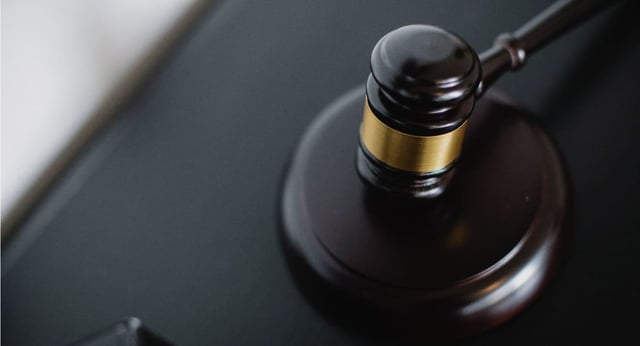What to do if you have a judgement against you
What to do if you have a judgement against you
Getting slapped with a court judgement can fill you with dread.
Most credit card debt is "unsecured," meaning it is not backed by property such as a home or car. But after a credit judgement ruling, the creditor can take steps to seize part of your salary, freeze your bank account, or even haul away your belongings. It can also charge interest at a court-approved rate, typically in the range of 5 percent to 10 percent, until you pay up.
Having a judgement filed against you brings with it a new level of debt collection. Thankfully, there are some things you can do to ease the pain.
So what is a judgement anyway?
A judgement is nothing more than a decision by a court that has been entered into the public record. In order for that decision to be made, someone must file a lawsuit. You will get time to formally fight the lawsuit but if you don’t fight the lawsuit, then a default judgment will be entered.
Also, if you do fight and lose the lawsuit, a judgment will also be entered.
I have a judgement against me. Now what?
You’re not supposed to wake up one day to find a judgement against you. You’re supposed to receive notice of a lawsuit, followed by a period of time during which you can choose to respond to the complaint.
That said, it’s possible that the creditor filed the lawsuit and either served you incorrectly or not at all. It’s also possible that you got the lawsuit papers and didn’t realise they were more than just letters from the creditor.
Read: What are debt collectors not allowed to do in South Africa?
A judgement has been finalised. What are my options?
Once the judgement is entered and finalised, you can’t fight it anymore. The creditor has claimed that you owe money, and a court has agreed. That said, here are some options for you to consider:
- Consider how Meerkat can help you
-
If you have only one account, and that account has a judgement, we can't help remove the judgement, but we can help make a payment arrangement with the attorneys.This basically means the account will not qualify for the debt review program, but we can help with the management of payments.If, however, you have multiple accounts and only one account has a judgement, we can help with the other accounts through the debt review program (the accounts that do not have a judgement), and we can help with the payment management with the account with the judgement.
Don't lose hope. Let's see if we can help you out!
-
- Pay the balance due in full;
- Work with the creditor to settle the debt or work out an agreeable payment plan;
- Allow the creditor to seize your assets in payment of the debt;
- Repay the debt involuntarily through a garnishee order;
- File for bankruptcy as a means of discharging or repaying the debt – depending on your situation.
The most common ways you may find out that there are outstanding judgements against you are:
- Letter in the mail or phone call from the collection attorneys;
- Garnishee notice from your payroll department;
- Freeze on your bank account; or
- Routine check of your credit report
When you go past due on a debt, the creditor calls and sends letters in an attempt to convince you to pay. Eventually, it goes to a collection agency.
When all else fails, the matter is turned over to a lawyer. That lawyer files a lawsuit and gets a judgement against you for the specific purpose of getting you to make payments. The judgement becomes a matter of public record and is indexed with the clerk of the court. It also shows up on your credit report as well as any background checks.
If you are concerned that you are not able to keep up with your debt repayments and a judgement could be heading your way why not tackle your debt now. Debt review may be the option for you.
Learn everything you need to know about how debt review can help you.
Summary: A judgement is a court decision entered into the public record after a debtor loses a lawsuit or fails to respond to a complaint. After a judgement is filed against a debtor, the creditor can take actions such as freezing the debtor's bank account, seizing assets, or garnishing wages. Some ways to handle a judgement include paying the balance in full, settling the debt, working out a payment plan, or filing for bankruptcy.
Whatever you do, don’t just ignore things. That only makes it worse.
Share our Article:



